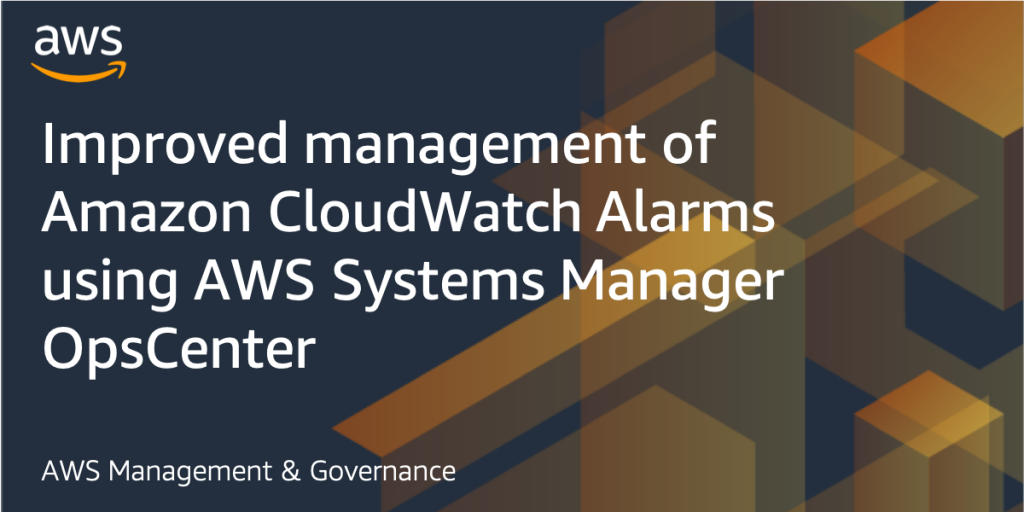AWS Cloud Operations Blog
Category: Advanced (300)
Launch a standardized DevOps pipeline to deploy containerized applications using AWS Service Catalog
As companies implement DevOps practices, they find that standardizing the deployment of the continuous integration and continuous deployment (CI/CD) pipelines is increasingly important. Many end users and developers do not have the ability or time to create their own CI/CD pipelines and processes from scratch for each new project. By using AWS Service Catalog, organizations […]
Create canaries in Python and Selenium using Amazon CloudWatch Synthetics
In April 2020, we launched Amazon CloudWatch Synthetics, which developers can use to create canaries that are configurable scripts running on a schedule to monitor endpoints, APIs, and website content. With canaries, your business can discover issues before your customers do, so you can react quickly to fix them. When you’re running scripts on CloudWatch […]
Introducing AWS CloudFormation modules
If you’ve used AWS CloudFormation, you’ve probably experienced times when you are trying to build applications and want to deploy resources with best practices defined. As you work on your templates, you might be curious about which resource properties to configure and which values to use to follow those best practices. While you’re building your […]
Creating ServiceNow incidents for AWS License Manager notifications
AWS License Manager streamlines the process of managing software licenses from software vendors like Microsoft, Oracle, IBM, SAP, and others across AWS and in on-premises environments. Administrators can create customized licensing rules that AWS License Manager enforces when Amazon Elastic Compute Cloud (Amazon EC2) instances are launched. This helps you prevent licensing violations by stopping the […]
Improved management of Amazon CloudWatch Alarms using AWS Systems Manager OpsCenter
In today’s world of DevOps, continuous deployments, and data-driven decisions, we are gathering more and more data from our applications. From metrics to logs to traces to time series data the volume of information being collected is growing at an exponential rate. This enormous amount of data is causing us to rethink traditional approaches to […]
Application configuration deployment to container workloads using AWS AppConfig
UPDATE (15 Dec 22): AWS AppConfig released an Agent for containers (EKS, ECS, Docker, Kubernetes) in December 2022, which makes calling AppConfig much simpler from containerized applications. We recommend using the AppConfig Agent for containers instead of the method below. Read the Agent documentation. AWS AppConfig is a capability of AWS Systems Manager that you […]
How to configure AWS X-Ray tracing for your AWS Batch jobs
Many customers implement business processes as batch workloads. End-to-end visibility into those workloads can help you identify bottlenecks in the batch jobs. In this blog post, I will show how to configure AWS X-Ray for your AWS Batch workloads in an automated way and present a sample application to visualize the collected X-Ray traces. AWS Batch is a […]
View AWS Trusted Advisor recommendations at scale with AWS Organizations
Since 2014, AWS Trusted Advisor has been providing customers with visibility into an individual AWS account and providing recommendations based on known AWS best practices. Trusted Advisor makes recommendations to help customers achieve a better security posture, control their costs, optimize application performance, design better fault tolerance, and maintain control over their AWS service limits […]
Cloud Native Application Monitoring for AWS
This blog post will show you how DXC used AWS management tools and services to create a custom cloud native application monitoring framework. DXC made this advanced monitoring offering available to their customers, which resulted in improved customer satisfaction. The business driver DXC has a robust set of tools and capabilities to solve customers’ application […]
AWS Config Rule Development Kit library: Build and operate rules at scale
AWS would like to introduce you to the RDKLib, an open source Python library you can use to build, develop, and deploy custom AWS Config rules at scale. RDKLib works with the AWS Config Rule Development Kit. It is designed to work at the AWS Lambda layer, so you can use the library without needing […]









